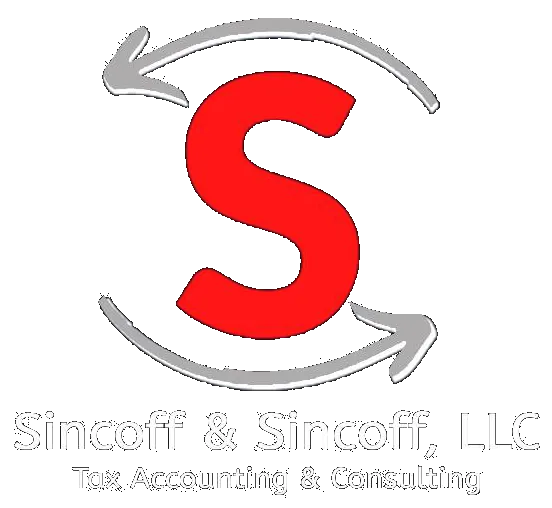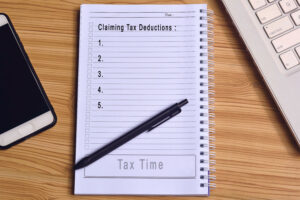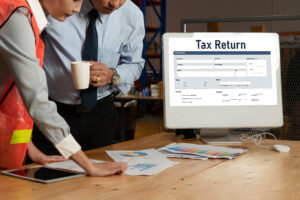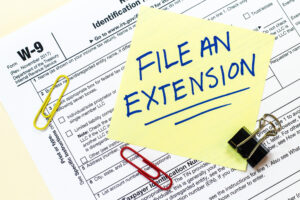If you’re running a small business in Monmouth County, you know how crazy things can get. You’re dealing with customers, employees, suppliers, and a million other things that keep you up at night. But here’s something that might surprise you – the way you handle your taxes could be the difference between struggling to pay bills and actually having money left over to grow your business.
Most business owners I know treat taxes like a dental appointment. They avoid thinking about it until absolutely necessary, then panic when April rolls around. But here’s the thing – tax planning isn’t about that one stressful week in March when you’re scrambling to find receipts. It’s about making smart decisions all year long that keep more money in your pocket.
Whether you’re running a pizza place in Long Branch, a landscaping company in Middletown, or a retail shop in Ocean Grove, the principles are the same. You work too hard to hand over more money to the government than you legally have to. The key is knowing what you’re doing and planning ahead.

Monmouth County, NJ CPA Services
Stop Thinking About Taxes Once a Year
Here’s where most small business owners mess up – they think about taxes only when their accountant calls in February asking for paperwork. But tax planning is like working out. You can’t do it once a year and expect good results.
Let’s say you’re having a really good year and you know you’re going to owe more taxes than usual. You’ve got some options. Maybe you delay sending out those December invoices until January, or maybe you prepay some expenses to balance things out. But you can only do this if you’re paying attention to your numbers throughout the year.
I know a contractor in Red Bank who bought a new truck in December instead of January because his CPA told him it would save him about three grand in taxes. That’s a nice chunk of change just for timing a purchase differently. But this only works if you’re planning ahead.
The other thing about cash flow – most small businesses have busy seasons and slow seasons. If you understand your patterns, you can time major expenses for when you have the cash available and need the tax deduction. It’s like playing chess instead of checkers with your money.
Your Business Structure Matters More Than You Think
A lot of business owners set up their company structure when they started and never think about it again. But as your business grows and makes more money, the way you’re set up can cost you or save you thousands.
Take S-corp election. If your business is making good money, this could save you a ton on self-employment taxes. But it’s not right for everyone, and there are rules you have to follow. You need to pay yourself a reasonable salary, and you need to keep good records. Miss these details and you could end up in trouble with the IRS.
LLCs are popular because they’re flexible. You can choose how you want to be taxed, which is pretty cool. As your business changes, you can adjust your tax strategy without having to completely restructure everything.
Don’t Ignore the Details
The thing about business structures is that each one has rules. Some are simple, others are complicated. Sole proprietorships are easy but you pay self-employment tax on everything. Partnerships let you split profits however you want but the paperwork gets messy. Corporations protect you from liability but you might pay taxes twice.
The right choice depends on your specific situation – how much money you’re making, whether you have partners, what kind of business you’re in, and what your plans are for the future.
Actually Keep Track of Your Expenses
This is where a lot of small business owners leave money on the table. You’re entitled to deduct legitimate business expenses, but you need to actually track them and understand what counts.
Section 179 deduction is huge for small businesses. Instead of depreciating equipment over several years, you can deduct the full cost immediately. Bought a new computer system, delivery truck, or piece of equipment? You might be able to deduct the whole thing this year. But timing matters – you generally need to buy it and put it in service by December 31st.
Home office deductions are real if you actually use part of your home exclusively for business. The IRS has simplified this with a standard rate per square foot, but sometimes the actual expense method works out better. Either way, you need to keep good records.
Vehicle expenses add up fast. You can either track actual expenses or use the standard mileage rate. Keep a mileage log – your phone probably has an app for this. The IRS wants to see where you went, when, and why it was for business.
Employee Benefits Are Tax Smart
Offering health insurance, retirement plans, and other benefits isn’t just about keeping good employees – it’s also good tax strategy. These expenses are generally deductible for your business while providing tax-free value to your employees.
If you’re profitable and want to save for retirement, look into SEP-IRAs or Solo 401(k)s. You can put away substantial amounts while reducing your current tax bill. It’s like getting paid to save for retirement.
Stay on Top of Quarterly Payments
Estimated quarterly payments trip up a lot of small business owners. The IRS wants their money throughout the year, not just in April. If you don’t pay enough quarterly, you’ll get hit with penalties even if you pay everything you owe by the deadline.
The tricky part is that quarterly payments are based on estimates, not actual results. Your business might have a slow quarter or a great quarter that you weren’t expecting. Working with a CPA to set up realistic payment schedules helps you avoid both underpayment penalties and tying up too much cash in tax payments.
Good record-keeping makes everything easier. Modern accounting software can track most of this stuff automatically, but you need to set it up right and actually use it. The more organized you are, the more opportunities you’ll spot to save money.
The bottom line is this – tax planning is really business planning. When you understand how taxes affect your business decisions, you can make smarter choices that keep more money in your pocket. Find a CPA who gets small business and work with them throughout the year, not just at tax time. Your future self will thank you.





